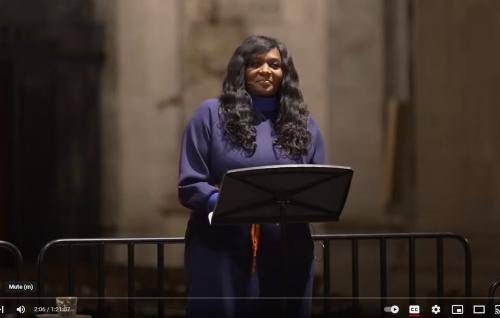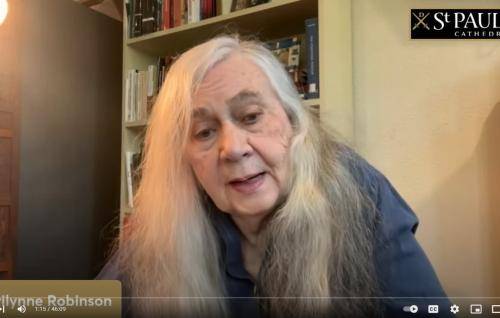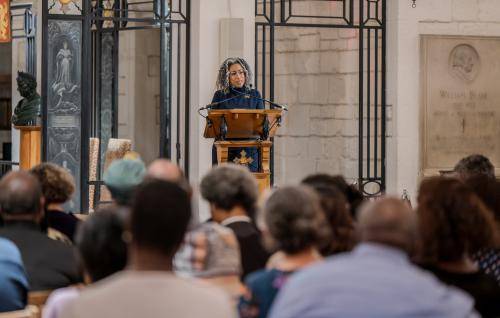A People Holy to the Lord: Kingship in the Bible
A People Holy to the Lord: Kingship in the Bible
Janet Tollington reflects on stories of kingship in the Bible, and what they mean for Christians today.
1. God is sovereign
Our Queen has always acknowledged her dependence on God and, with her, we give thanks to God for our nation’s stability throughout her 70 year reign. Throughout this month we’ll be thinking in these reflections about what the Bible has to say about kingship.
Israel’s monarchy arose from feelings of discontent about the existing leadership - a series of Judges who had provoked tribal division, or proved corrupt - and a desire to be like other nations. So, from the outset, it was a rejection of their identity as a people ‘holy to the Lord’, called out from the nations as God’s treasured possession (Deuteronomy 7:6) with only God as their sovereign. As people of faith we are reminded that human monarchs were never God’s idea!
In the Book of Samuel, the monarchy is presented by the prophet as a costly institution impacting every household subject to it, through taxation and the demands for people to serve and maintain it. It is concomitant with a nation state and military forces to defend it. History tells of nations growing into empires as a monarch’s power is exerted over other nations and lands which lose their autonomy before the pendulum then swings in the opposite direction. God, through the prophet, warns the people of the negative consequences that will flow from being a monarchy but they are determined; and God grants their request.
The next four chapters of 1 Samuel explore differing ways of selecting a king and the reality that whether this is by divine choice or human discernment no human monarch will ever live up to the ideal envisaged. In truth, no human institution of government is perfect. God alone is sovereign and able to provide for all our needs and save us – from ourselves and all dangers.
What lies ahead will be different and next week we will reflect on the biblical story of monarchic succession; but today we echo God’s people of old - ‘Long live the (king) Queen!’ (1 Sam.10:24).
2. The tricky issue of succession
Israel’s first king, Saul, didn’t live up to expectations. Alongside him, David, God’s anointed ‘king in waiting’, grew in reputation among the people as a leader and consequently undermined Saul. When Saul died his military commanders made his son Ishbaal king; but the tribe of Judah proclaimed David as king and after seven years of mayhem all Israel accepted David as God’s chosen king (2 Sam.5:1-5) resulting in a fragile sense of national unity.
David immediately planned to build a temple, to ‘house’ God on earth. How often do we foolishly imagine that we know what God needs, or that God depends on human initiative to further the divine purposes? God is the one who will build a ‘house’, David is told, a dynastic line to succeed him on the throne forever.
This concept of hereditary monarchy offers stability to a nation; it avoids an hiatus in leadership following a death and minimises the potential for rival claims to the throne being made. It doesn’t ensure that every monarch will be upright though, and failure to exercise good leadership should not be condoned (2 Sam.7:14).
The issue of succession remained a point of contention among God’s people. After Solomon’s death the former northern tribes decided that God’s promise referred to monarchs individually identified as possessing David’s qualities, rather than his genes. They broke away from Judah, becoming the kingdom of Israel with an elected monarchy, leaving the southern kingdom with dynastic kingship. This division effectively marked the beginning of the end for both kingdoms; Israel fell to Assyria within two centuries and Judah to Babylon about 130 years later.
God’s people learned the hard way that hereditary monarchy cannot ensure prosperity and peace – but nor can an elected head of state. God remains sovereign and will not be usurped.
3. Kingship for a radically new era
Isaiah 45:1-7 and 55:1-5
Israel’s monarchy ended during the Babylonian exile when the last king in David’s line died in captivity around 560 BCE. Various hopes for its restoration emerged; but they came to naught. Had God reneged on the divine promise about continuity? Or was a desire to return to a ‘normal’ way of life blinkering God’s people against a radical new vision being offered to them? Was their faith ‘stuck in a rut’?
These two oracles from Isaiah were proclaimed in exile and relate to ideas about kingship. First, the prophet identifies Cyrus, a Persian, as God’s ‘anointed’ (in Hebrew, messiah), symbolically affirming him as a divinely chosen ‘king’. Then the covenant with David is restated as being between God and the exiles who responded with renewed faith to God’s invitation collectively, rather than simply between God and king.
The new idea that Cyrus, who didn’t know Israel’s God, could be David’s successor is radically new theology. It proclaims God at work outside the community of faith through a foreigner acting to liberate the exiles. Cyrus would fulfil the expectations of a king and Israel would return to their land, to rebuild temple and community life, in peace. Unwittingly Cyrus’ accomplishments demonstrated God’s faithfulness to Israel and revealed God’s sovereign power to the world.
The second oracle transferred the responsibilities of maintaining the covenant with God from the king to the people as a whole. No longer could they rely on a king to mediate God’s will or guide them. God expects them to grow in faith personally and become a mature faithful community, witnessing to the nations about God’s love.
God’s former promises continued, reinterpreted in radical ways for a new era. Messianic hopes developed that still sustain God’s people. God’s sovereignty continues but how it is mediated on earth might challenge our expectations as times change. Are we wearing theological blinkers? Or striving to discern the future into which God invites us with radically renewed faith?
4. The Kingship of Christ
John 18:33-40; Ephesians 1:15-23
Naming Jesus as King was a problem for Jews in his day: it implied a direct challenge to Roman rule over them and their land. There was another problem: God’s people were not of one mind about the hopes and expectations they held about the Messiah. Nothing much has changed in that regard!
The future of monarchy remains a political issue in this land; but the Christian claim ‘Christ is King’ isn’t usually understood (sadly?) as a threat to the governing powers. So what does it mean for us; for the world?
If we transfer our hopes to the eternal, heavenly realm where Christ reigns as king, it may offer spiritual help in the face of earthly problems. However we pray for God’s kingdom to come on earth as in heaven; and Jesus came to transform people’s lives, to establish peace and justice between nations, communities, families in this world.
The idea of the Church as Christ’s body on earth is developed in the Letter to the Ephesians. So, if Christ as King is exercising God’s sovereign rule over all creation, then Christians are called, collectively, to embody that kingship and continue God’s mission begun in Jesus’ ministry. This has radical implications for everything we say and do.
It challenges us to speak into political situations in the name of Christ; to work for justice wherever it is denied to the poor, the oppressed, the refugee, the marginalised in society. It requires Christians to live up to the expectations God’s people of old vested in David; to live in accord with God’s ways and mediate God’s love to a world crying out for salvation.
God remains sovereign. Christ is King. Christians are responsible for making this known throughout the world. This is the radical truth of the gospel. Have we the faith to live it?








